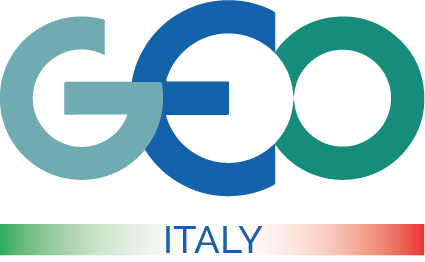Climate change is one of the most important challenges that humanity will have to address in the coming decades. The Intergovernmental Panel on Climate Change (IPCC) has concluded that a large part of the observed rise of global temperature is very likely due to increasing greenhouse gases (GHG) in the atmosphere, driven by man-made emissions overtaking the natural cycles of carbon dioxide (CO2), methane (CH4) and nitrous oxide (N2O). The perturbed global biogeochemical cycles of these greenhouse gases are a major driving force of current and future climate change. The primary agents of these perturbations are fossil fuel combustion and modifications of global vegetation through land use change, in particular deforestation. Deeper understanding of the driving forces of climate change requires full quantification of the GHG cycles. Regional GHG flux patterns, tipping-points and vulnerabilities can be assessed by long-term, high precision in-situ observations in the atmosphere and at the ocean and land surface. They are complemented by in-situ and satellite observations of carbon pools as well as total column observations from satellites. CEOS (Committee on Earth Observation Satellites) has responded to the GEO Carbon Strategy and provided coordination to all the national and regional satellite agencies; GCP (Global Carbon Project) has provided annual updates of the global carbon budget and coordinating many global and regional efforts, in particular by establishing the mean carbon balance of large regions in the RECCAP (REgional Carbon Cycle Assessment and Processes) project.
A GEO Carbon and GHG Flagship will contribute to the implementation of the next GEO Strategic Plan for the period 2016-2025. The flagship will address important issues needed to build a connected and interoperable global network for carbon cycle (CC) and greenhouse gas (GHG) observations in the atmospheric, terrestrial ecosystem and oceanic domains.
In particular the GCGF will address these questions:
► What kind of carbon cycle and GHG observations are urgently needed to support the Sustainable Development Goal: “Take urgent action to combat climate change and its impacts” (and party the Goal: Sustainably manage forests, combat desertification, halt and reverse land degradation, halt biodiversity loss”)?
► Where are we coming from, i.e. what are the most important recent achievements in terms of science and infrastructural capacity?
► Where do we want to go, i.e. what remains to be done in the framework of GEO for the next 10 years? In particular, how can we ensure that achieved capacities can be fully explored for multiple needs and not just for the specific circumstances they were developed for?
► Who will be the important data providers, integrators and users?
► How can a sustainable structure be achieved? What is fundamental, what is desirable, what would be nice to have but not essential?
► What are the most urgent needs for integration between different information sources and across methodologies, between different regional networks and from data providers to users? What is the intent of integration? Blending? Coupling? Transforming? How do we assess integration methods in light of relevant objectives? How can different data sources and modeling approaches be used to evaluate our understanding of processes and their emergent properties?

The main objectives of this flagship are:
▪ to provide more inclusive coordination among the main actors monitoring carbon cycle and GHG at global level;
▪ to further develop inter-operability between satellite observations; in-situ infrastructures and integration networks by
▫ Data harmonization (data and metadata formats),
▫ Further development of full and open data sharing,
▫ Long-term sustainability of data centers and model result repositories,
▫ Understanding and quantifying scale issues and process information across in-situ measurements and satellite platforms;
▪ to support the development of Model Data Fusion to improve parameter optimization;
▪ to envisage a GEO role in organising and backing intercomparison exercises;
▪ to establishing standard datasets for synthesis and dissemination of policy-relevant information on global carbon cycle and GHG:
▫ to raise awareness and promote data use e.g. towards UNFCCC Subsidiary Body for Scientific and Technological Advice (SBSTA);
▫ to liaise science with policy and provide decision makers with timely and more reliable policy-relevant information
▪ to coordinate the periodic update and supply of comprehensive carbon budgets (covering also less studied region/ecosystems, and unknown sources, with progressively reduced uncertainty) at different levels (global, regional, domains, etc.) and integrating different approaches;
▪ to provide knowledge that assures the quality of national inventories and to secure the effectiveness of UNFCCC.
Other objectives for the GEO flagship process:
▪ to support for sustaining, developing and exploiting existing as well as promoting new observing platforms and infrastructures;
▪ to harmonize existing protocols for biogeochemical data collection and analysis, as well as full and open sharing;
▪ to contribute data to cost-benefit analyses that show the costs of better informed actions versus inaction;
▪ Promote further consistency of observations and specification of uncertainty that is fully traceable and accepted by the community.

